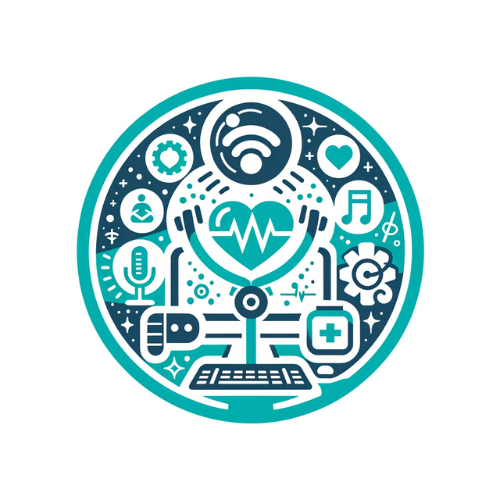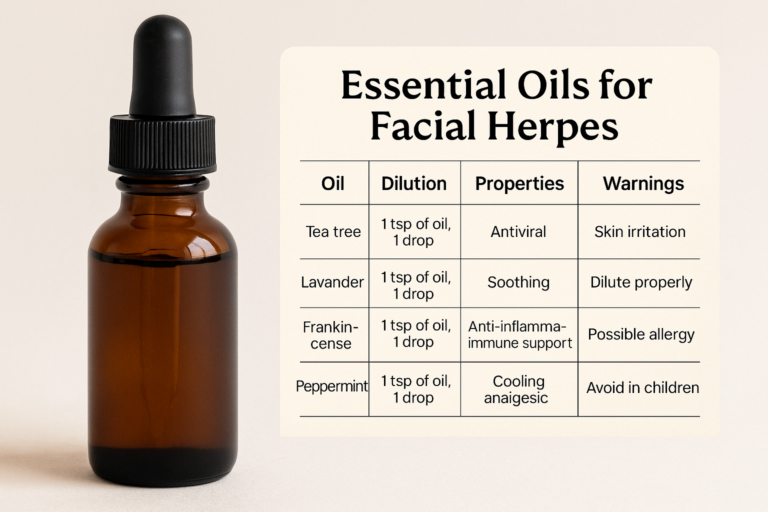Call us now:
USA News: Combat Quad-Demic Stress with Effective Brain Health Solutions for a Healthier 2025
Welcome to the USA news section, today we want to talk about a critical health concern that has surfaced in recent months: the quad-demic.
With four major illnesses—influenza, COVID-19, respiratory syncytial virus (RSV), and norovirus—converging to form a “perfect storm” of infections, it’s important to acknowledge not only the physical impact of these diseases but also their profound influence on our mental and emotional well-being.
As we look ahead to 2025, the synergy between physical and mental health has never been more crucial.
This article explores how you can protect your brain health during these challenging times, offering practical strategies to safeguard both mind and body.
Understanding the Quad-Demic Phenomenon
Over the past several months, medical experts across the USA have been reporting an alarming surge in multiple respiratory illnesses.
Influenza, COVID-19, RSV, and norovirus each pose individual risks—but when they circulate simultaneously, the overall impact can be overwhelming, stretching healthcare resources to the limit and affecting our collective mental health.
According to data from the Centers for Disease Control and Prevention (CDC), hospital bed occupancy for flu alone has tripled since late December, while COVID-19 continues to fluctuate, and RSV remains a leading cause of infant hospitalizations.
The term “quad-demic” highlights the simultaneous outbreak of these four major illnesses, especially during the peak respiratory virus season from December to February.
As people face heightened anxiety over contracting these viruses—or worse, multiple infections at once—the psychological fallout is considerable.
In fact, the CDC previously reported that during the initial pandemic waves, symptoms of anxiety and depression rose dramatically among adults in the United States.
By projecting these concerns into a multi-virus environment in 2025, it’s clear that our mental resilience is being tested yet again.
The Mind-Body Connection
Numerous studies confirm the profound link between our mental state and our physical health.
When facing ongoing threats such as a quad-demic, the body’s stress response—which releases cortisol—can remain persistently elevated.
While cortisol is helpful in short bursts, chronic elevations can impair cognitive functions like memory and decision-making, as well as hamper the immune system.
This cyclical pattern is especially concerning for those already dealing with chronic conditions or heightened stress from work, financial concerns, and family responsibilities.
Moreover, conditions such as anxiety or depression don’t simply affect our mood; they also impact how we recover from physical illnesses.
Higher stress levels can slow healing, weaken immune responses, and potentially exacerbate underlying health issues.
Consequently, maintaining robust brain health is vital—not just to enhance emotional well-being, but also to bolster our resilience against these intersecting health threats.
How Can I Avoid Anxiety?
Amid concerns over rising infection rates, many Americans find themselves asking: “How can I avoid or reduce anxiety?”
While it’s not always possible to eliminate worry, there are concrete steps you can take to manage anxious feelings and protect your mental health:
1. Practice Mindfulness
The stress of living through a quad-demic can trigger a fight-or-flight response.
Meditation and controlled breathing techniques help calm this heightened state by:
- Strengthening the prefrontal cortex: The brain region responsible for decision-making and self-regulation.
- Decreasing activity in the amygdala: This structure is associated with fear and anxiety responses, so reducing its reactivity can provide immediate relief.
- Improving attention and cognitive abilities: Consistent mindfulness practice supports clearer thinking and better focus.
2. Stay Active
Regular physical exercise stimulates the production of endorphins and serotonin, chemicals that boost your mood and combat anxiety.
Try to incorporate moderate activities like brisk walking, yoga, or cycling at least three times a week.
3. Connect with Loved Ones
Human beings thrive on love and social support.
Talking to friends, joining community groups, or simply spending quality time with family can provide significant emotional relief.
Studies repeatedly show that strong social bonds create a buffer against stress and mental health challenges.
What Is the Best Way to Manage Stress?
Managing stress effectively goes beyond basic coping mechanisms—it’s about developing a long-term lifestyle that supports emotional resilience.
Here are a few strategies to consider:
1. Structured Scheduling
Try creating a daily schedule that includes breaks for leisure, self-care, and relaxation.
This approach lends a sense of control over your day.
Planning activities in a realistic manner helps reduce the feeling of being overwhelmed.
2. Limit Information Overload
While staying informed about the quad-demic is crucial, constant exposure to dire news can be detrimental.
Designate specific times to check reputable news sources.
This helps manage the influx of sensational headlines that can trigger stress.
3. Seek Professional Help
Therapists, counselors, and other mental health professionals can offer tailored strategies to cope with ongoing stressors.
It’s a misconception that one must be in crisis to seek professional guidance.
In reality, proactive engagement with mental health services can help prevent more severe issues down the line.
Brain Health Solutions and Strategies for 2025
Addressing mental well-being is a priority as we move into a new phase of public health challenges.
The following strategies aim to equip you for a healthier future:
1. Embrace Holistic Health Practices
Holistic health places equal importance on mind, body, and spirit.
A balanced lifestyle includes:
- Nutrition: Incorporate brain-friendly nutrients like omega-3 fatty acids, found in fish, chia seeds, and walnuts, to support cognitive function.
- Exercise: Engage in both cardiovascular activities for heart health and strength training for muscular support.
- Psycho-emotional well-being: Engage in therapy, mindfulness, or journaling to manage stress and maintain emotional balance.
2. Engage in Regular Mental Exercises
Think of your brain as a muscle that benefits from consistent, targeted exercises:
- Puzzles: Crossword puzzles, Sudoku, and jigsaw puzzles help sharpen problem-solving abilities.
- Reading: Expand your vocabulary and comprehension by reading widely—literature, science articles, or personal development books.
- Creative pursuits: Learning an instrument, painting, or writing can encourage new neural connections and stimulate brain plasticity.
3. Practice Meditation
Mentioned briefly above, meditation deserves its own spotlight due to its remarkable impact on brain health.
It:
- Fortifies the prefrontal cortex: Aids in impulse control and critical thinking.
- Lowers amygdala reactivity: Helping to quell panic responses and fear.
- Enhances cognitive abilities: Improves memory, attention span, and mental clarity.
Even just 10 minutes a day can lead to noticeable improvements in emotional regulation and overall sense of well-being.
The Importance of Community and Support Systems
Navigating a quad-demic underscores the value of love, freedom, and society in maintaining mental equilibrium.
Research shows that social support—whether it’s family, friends, or community groups—dramatically improves outcomes during health crises.
Virtual support groups, online therapy platforms, and volunteer initiatives can foster connectivity even when physical distancing is necessary.
Volunteering or participating in community projects has been shown to reduce stress and enhance psychological well-being.
Sharing our experiences and challenges helps create a sense of solidarity, reinforcing the truth that we are all in this together.
Looking Ahead: Preparing for 2025
As we forge ahead, the quad-demic situation highlights the urgent need for integrative health approaches.
The synergy between physical illness and mental health demands coordinated efforts from healthcare providers, policymakers, educators, and community leaders.
Strengthening brain health must be an essential component of any public health blueprint, particularly when confronting multi-virus outbreaks.
On a broader scale, local and federal initiatives can support:
- Access to mental health services: Ensuring availability of therapy, counseling, and support hotlines.
- Preventive care: Promoting vaccinations, healthy lifestyles, and community education to reduce infection rates.
- Community engagement: Investing in spaces and programs that keep people interconnected, from virtual seminars to neighborhood gatherings.
Every stakeholder, from family members to public officials, plays a role in fostering resilience and ensuring a future where mental and physical health are protected against the uncertainties that lie ahead.
Consulting Experts for Brain Health
If you feel overwhelmed by the stress of the quad-demic or find it difficult to manage your anxiety or stress levels, remember you’re not alone.
Seeking professional guidance can make a significant difference in how you cope and thrive.
For personalized support and strategies, we recommend you consult brain health experts. You can schedule an appointment here: https://www.visitamedicaonline.com/agenda-tu-cita/.
Such professional input can offer solutions tailored to your specific circumstances, helping you balance emotional well-being with the demands of everyday life in these uncertain times.
Stay Informed and Evolve
As we collectively address the challenges associated with this quad-demic, it’s important to stay informed about new developments in brain health and holistic wellbeing.
Knowledge empowers us to make decisions that foster resilience and a proactive approach to maintaining our mental equilibrium.
We encourage you to subscribe to our blog for ongoing insights into brain health, emerging research, and practical tips to enhance your quality of life in 2025 and beyond.
You might also find valuable resources by tuning into The Brain Care Podcast: https://www.youtube.com/@thebraincarepodcast.
Respira, sana, evoluciona
By integrating meditation, exercise, mindful nutrition, and strong social connections, you can substantially reduce stress and fortify your mental resilience during these challenging times.
The ultimate goal is not just to endure the quad-demic but to emerge stronger and healthier—both mentally and physically—ready to embrace the promises of 2025.
Bibliography
- Centers for Disease Control and Prevention (CDC). Mental Health Effects of COVID-19. Link
- Independent. USA News: Combat Quad-Demic Stress with Effective Brain Health Solutions for a Healthier 2025. Link
- American Psychological Association. The Relationship Between Physical and Mental Health.
- Quad-demic’ of illnesses hitting US as virus season surges. Accessed from Link



